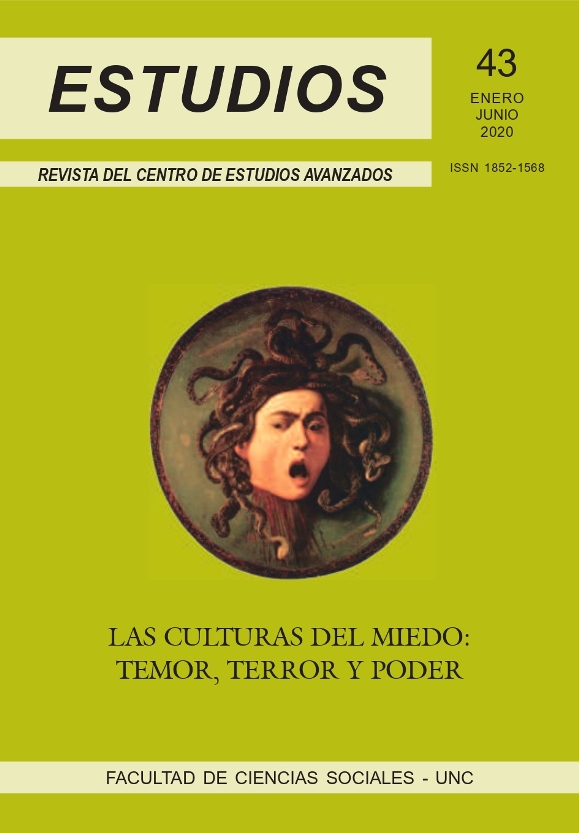War on Terror and repoliticization of the fear. Scope and effects of homegrown terrorism in Western societies
DOI:
https://doi.org/10.31050/re.vi43.27952Abstract
Although, since classical antiquity, fear has been considered as a decisive factor to influence the opinion of human beings, its cardinal importance for politics will be formulated during the Renaissance and, fundamentally, Modernity. Thenceforth, fear will be considered the essential element of the social order while, on the contrary, terror will be conceived as an adverse factor to all forms of civil life. Thus, fear became the privileged link between sovereign power and the protection of the lives of the citizens. Centuries later, this relationship underwent significant changes since the attack on the Twin Towers. This attack initiated the transformation of the West as a war scenario, the end of the state prerogative to declare war and the installation of the premise that every person, regardless of nationality or religion, is suspected of being a threat to the society in which they live. Based on these considerations, this article will address the relationship between fear and politics and the consequences of the emergence of terror as a new variable that signifies the subjectivities of people and the dynamics of government.
Downloads
Published
Issue
Section
License
Aquellos autores/as que publiquen en esta revista, aceptan los términos siguientes:- Los autores/as conservarán sus derechos de autor y garantizarán a la revista el derecho de primera publicación de su obra, el cual estará simultáneamente sujeto a la Licencia Creative Commons Atribución-NoComercial 4.0 Internacional que permite a terceros compartir la obra siempre que se indique su autor y su primera publicación esta revista.
- Los autores/as podrán adoptar otros acuerdos de licencia no exclusiva de distribución de la versión de la obra publicada (p. ej.: depositarla en un archivo telemático institucional o publicarla en un volumen monográfico) siempre que se indique la publicación inicial en esta revista.
- Se permite y recomienda a los autores/as difundir su obra a través de Internet (p. ej.: en archivos telemáticos institucionales o en su página web) luego del proceso de envío, lo cual puede producir intercambios interesantes y aumentar las citas de la obra publicada. (Véase El efecto del acceso abierto).












